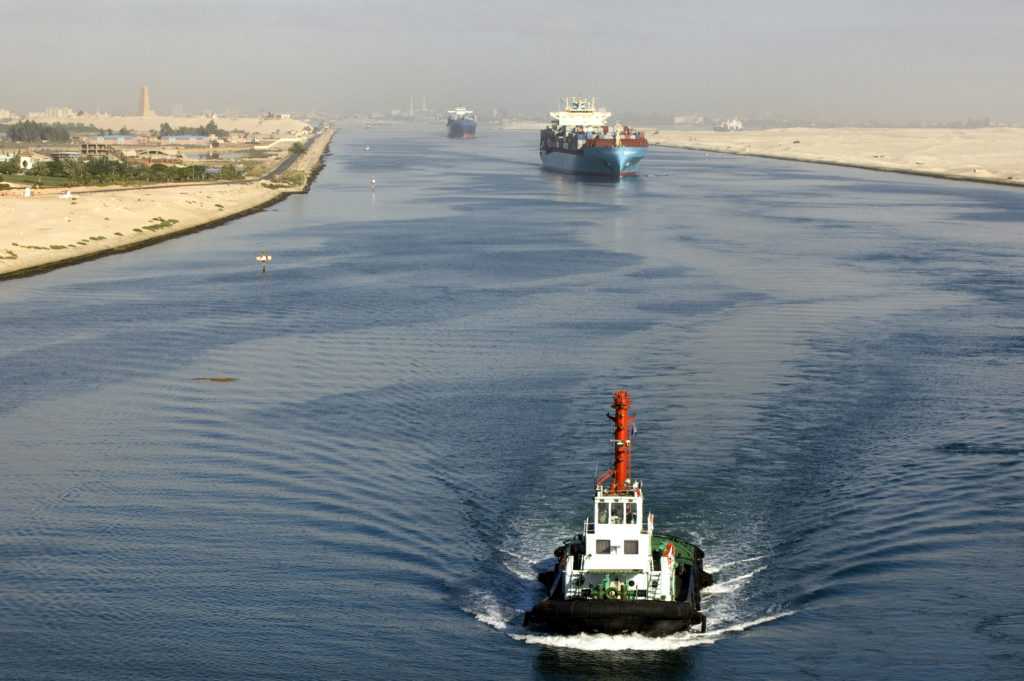The Next Suez Threat? A Big Hack

Originally published by Bloomberg Opinion – By Victoria Coates and Robert Greenway
Traffic regulation in the canal is hopelessly antiquated; the world needs to come together to protect this vital seaway channel from terrorist and cyber attacks in addition to accidents.
The world breathed a collective sigh of relief on Monday as the Ever Given, a colossal container ship, was freed from the Suez Canal. But we shouldn’t celebrate just yet. The Ever Given brought traffic through one of the world’s busiest shipping corridors to a halt for almost a week, at a cost of roughly $10 billion a day.
Every day the Ever Given blocked the Canal compounded the problem as containers already booked on future voyages sat in stranded ships and supply chains began to break down. The U.S. Department of Defense has offered to help in the recovery, and that assistance should include addressing Suez security more broadly. The Ever Given can serve as a wake-up call to bring the canal’s security architecture into the 21st century and ensure that it continues to fulfill its historic role as the vital channel between Europe, Africa and Asia.
While proposals for physical upgrades to the Suez are already being proffered, a less-discussed issue is that the current legal architecture governing the Suez is hopelessly antiquated and new mechanisms are needed to deal with modern vessels and potential threats. The Convention of Constantinople that regulates the canal’s traffic has been in place since 1888 (even after former Egyptian President Gamel Abdel Nasser nationalized the Suez in 1956) on the premise that the canal is such a collective good, no one would be foolhardy enough to try to harm it, and it should therefore simply be kept open to all properly flagged and insured vessels, regardless of origin.
Click HERE to read more.
- When David Met Lisa - December 20, 2021
- Why the United States, not China, needs to shape Middle East policy - December 20, 2021
- Victoria Coates on the confusion in Natanz - December 10, 2021
